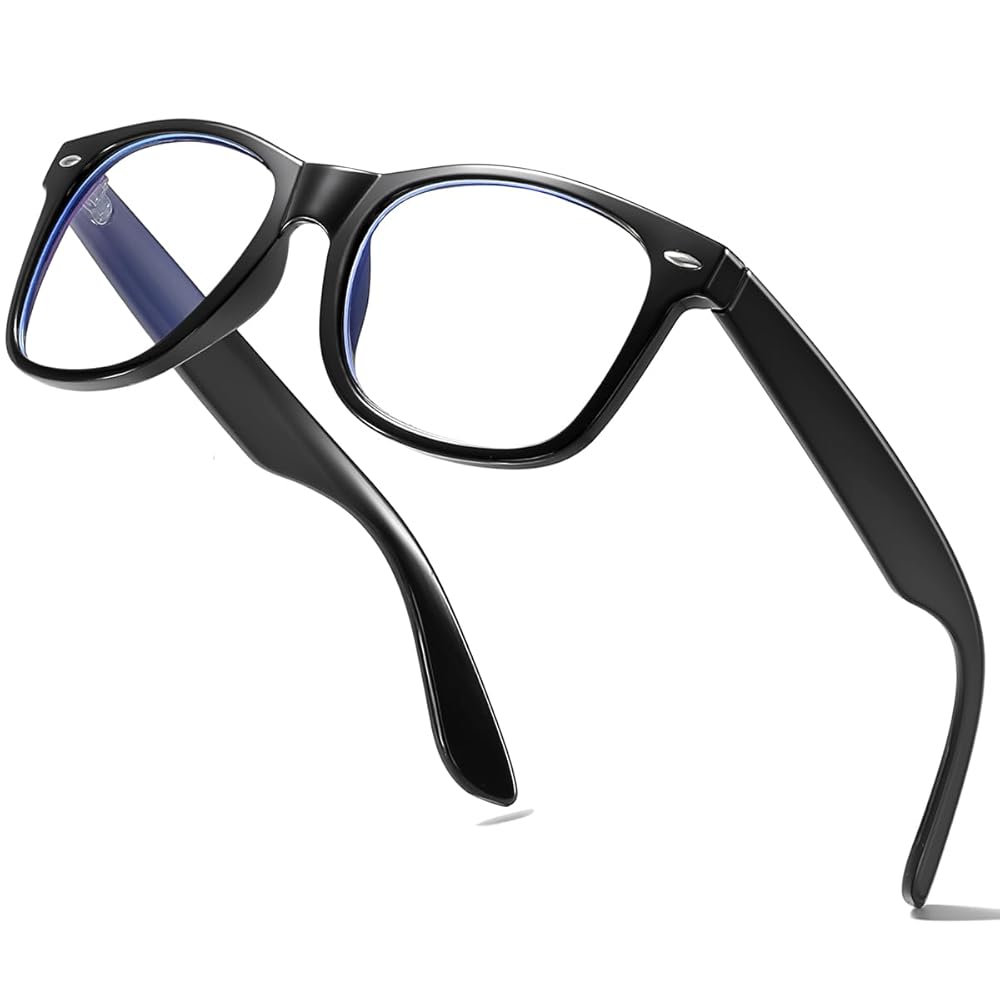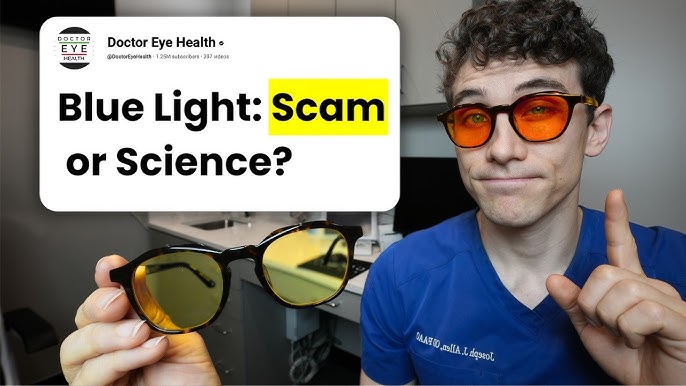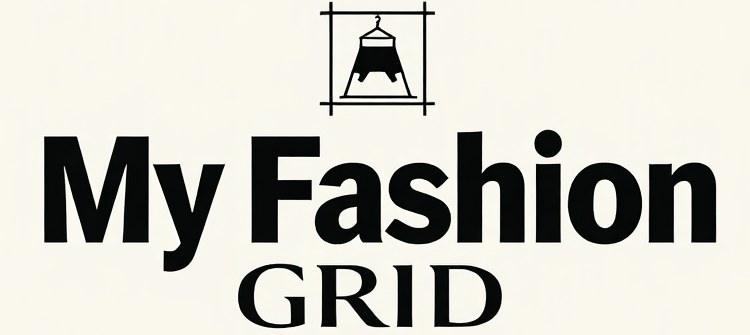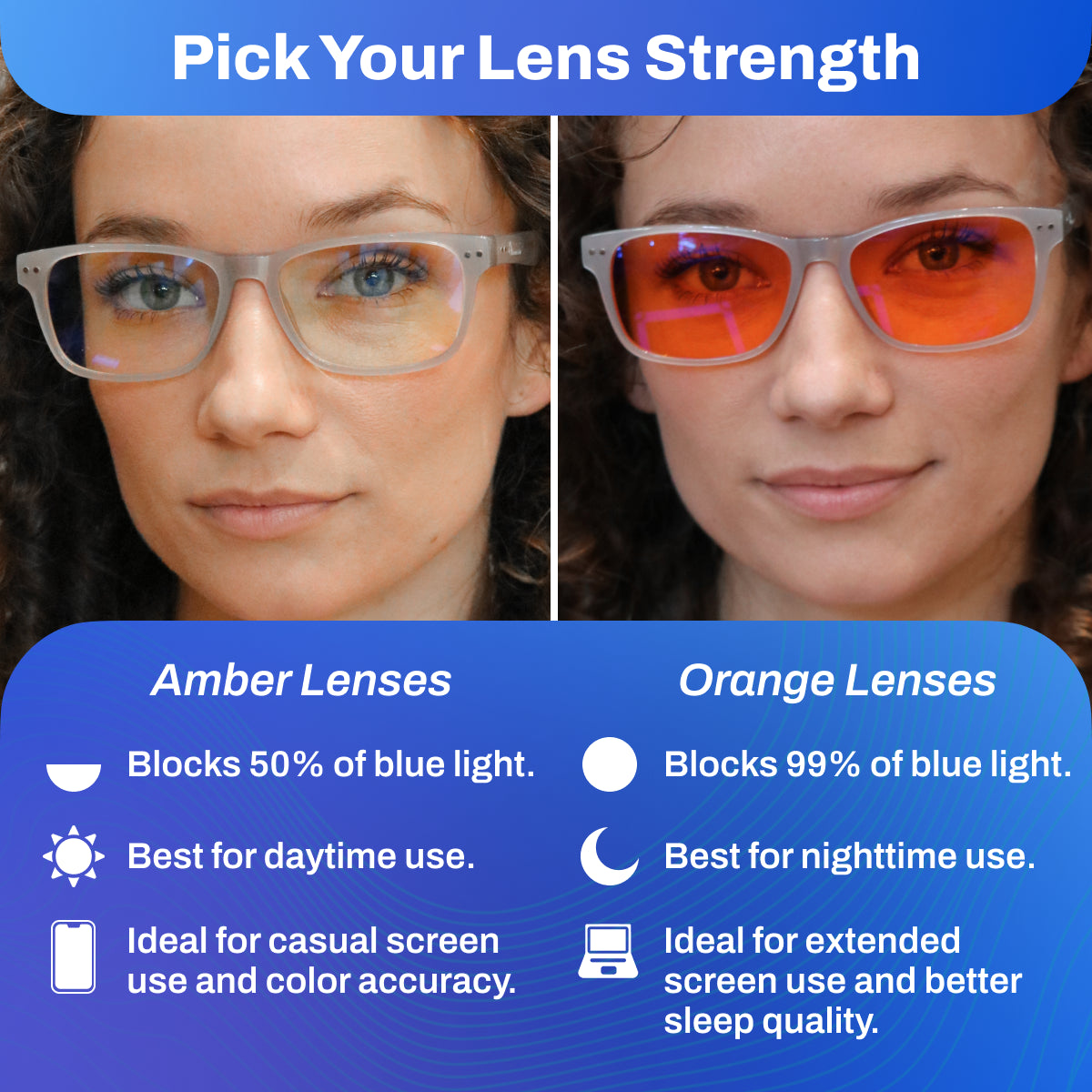Are you wondering if your everyday sunglasses can protect your eyes from the blue light emitted by your digital screens? You probably know sunglasses shield your eyes from harmful UV rays, but what about the invisible blue light that comes from your phone, computer, or tablet?
Understanding whether sunglasses block blue light is important because this type of light can cause eye strain, headaches, and disrupt your sleep. You’ll discover the truth behind sunglasses and blue light protection, what types of lenses actually work, and how to choose the right eyewear to keep your eyes comfortable and healthy—whether you’re outdoors or staring at a screen.
Keep reading to find out what really works for your eyes.

Credit: www.amazon.com
Blue Light Vs Uv Light
Blue lightand UV lightare two different types of light. UV light has shorter wavelengthsand can cause skin burns and eye damage. Blue light has longer wavelengthsand is part of the visible light spectrum.
Sources of blue lightinclude the sun, digital screens, LED lights, and fluorescent bulbs. The sun is the main natural source. Screens from phones, tablets, and computers emit blue light that can strain eyes.
| Type of Light | Wavelength | Main Sources | Effects on Eyes |
|---|---|---|---|
| Blue Light | 400-500 nm | Sun, screens, LED bulbs | Can cause eye strain and sleep issues |
| UV Light | 100-400 nm | Sun, tanning beds | Can cause eye damage and skin burns |
Standard Sunglasses Limitations
Standard sunglasses are mainly designed to block UV rays, not blue light. Their lenses usually lack special coatings that filter high-energy blue lightfrom screens.
Many sunglasses have amber or brown tintsthat reduce glare and some blue light, but this is not enough for full protection. Without blue light filtering coatings, they cannot shield your eyes from prolonged screen exposure.
These glasses help outdoors by blocking UV rays and bright sunlight, but they do not address digital eye strain caused by blue light. For effective blue light blocking, glasses must have lenses made or treated specifically for that purpose.
When Sunglasses Reduce Blue Light
Amber and brown tinted sunglassescan reduce some blue light. These colors absorb more blue light waves than clear lenses. They help lessen eye strain caused by screens and bright sunlight.
Specialized blue light filtersoffer better protection. These lenses are made to block the high-energy blue light from devices like phones and computers. They often have a coating that absorbs blue light but lets other light pass through.
Using regular sunglassesoutside can block UV and some blue light, but they are not enough for screen use. For digital screens, glasses with special blue light filters work best. These reduce glare and protect eyes during long screen time.
Choosing Blue Light Glasses
Dedicated blue light blocking lensesare made to filter the harmful blue light from screens. These lenses help reduce eye strain and improve comfort during screen time. They often have a special coating that blocks or absorbs blue light.
Combined UV and blue light protectionsunglasses offer a two-in-one solution. They block both ultraviolet raysand blue lightfrom sunlight and screens. This type is useful for outdoor activities and screen use alike.
| Type | Protection | Best Use |
|---|---|---|
| Blue Light Blocking Lenses | Blocks blue light from screens | Indoor screen use |
| Combined UV & Blue Light Sunglasses | Blocks UV rays and blue light | Outdoor and screen use |
Testing Blue Light Blocking Effectiveness
Lens materialplays a key role in blocking blue light. Most sunglasses use polycarbonate or glass lenses. These materials mainly block UV light, not blue light. Some lenses have special coatingsto filter blue light. Testing involves checking the lens with devices that measure light spectrum. This shows how much blue light passes through.
Coatings can reduce blue light by 20% to 50%, depending on quality. Clear lenses with blue light filters work better indoors. Dark tinted lenses block some blue light but mostly reduce brightness. Not all sunglasses claim to block blue light, so check the label.
Eye care professionalssuggest using glasses made for blue light if you spend hours on screens. Sunglasses help outside by protecting from UV and some blue light. Regular eye exams can check if you need special lenses. Protecting eyes from blue light helps reduce strain and improve comfort.

Credit: www.youtube.com
Popular Blue Light Blocking Products
Affordable optionsoffer basic blue light blocking at low prices. Brands like Detour and Black Shades provide lenses that filter some blue light. These glasses usually cost under $50. They are good for short screen time or casual use.
High-end choicesoffer better protection and comfort. Products like Ra Optics and Quadra use advanced coatings to block more blue light. These can cost $100 or more. They often have extra features like anti-glare and UV protection.
| Type | Price Range | Key Features | Example Brands |
|---|---|---|---|
| Affordable | Under $50 | Basic blue light filtering, casual use | Detour, Black Shades, Real Shades |
| High-End | $100 and above | Advanced blue light block, anti-glare, UV protection | Ra Optics, Quadra |

Credit: www.goodrx.com
Frequently Asked Questions
Can I Use Sunglasses As Blue Light Glasses?
Most sunglasses block UV rays, not blue light from screens. Only specialized blue light glasses effectively filter harmful digital blue light. Some tinted sunglasses may reduce blue light slightly but don’t offer full protection. Choose glasses with specific blue light filtering coatings for optimal eye safety.
How Do I Know If My Sunglasses Are Blocking Blue Light?
Check the product description for blue light filtering features or certifications. Sunglasses with amber or brown tints may reduce blue light slightly. Use specialized blue light blocking glasses for reliable protection from digital screens.
Do Polarized Glasses Stop Blue Light?
Polarized glasses reduce glare but do not specifically block blue light. Use specialized blue light glasses for effective protection.
Can Sunglasses Block Blue Light From Phones?
Most standard sunglasses block UV rays but do not effectively filter blue light from phones. Some tinted lenses reduce blue light slightly. For best protection, use specialized blue light blocking glasses designed for digital screens.
Conclusion
Sunglasses mainly block UV rays, not all blue light. Only certain tints, like amber or brown, reduce some blue light. For screen use, special blue light glasses work better. Protecting your eyes needs the right lenses for the right purpose.
Choose glasses based on how and where you use them. Clear understanding helps you keep your eyes healthy every day.

Marry Christin, a passionate fashion designer and style enthusiast. Fashion isn’t just my profession—it’s my addiction! Along with my expert team, I bring you honest reviews of the latest fashion trends, including shoes, boots, sandals, dresses, and more.

